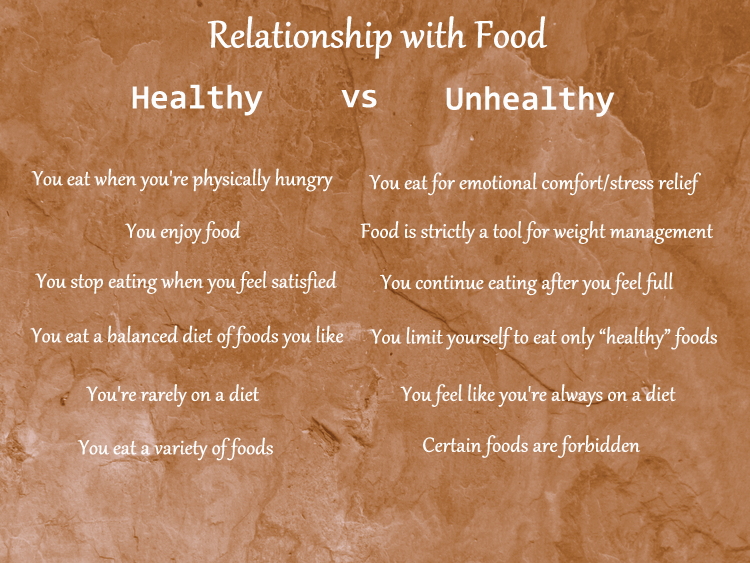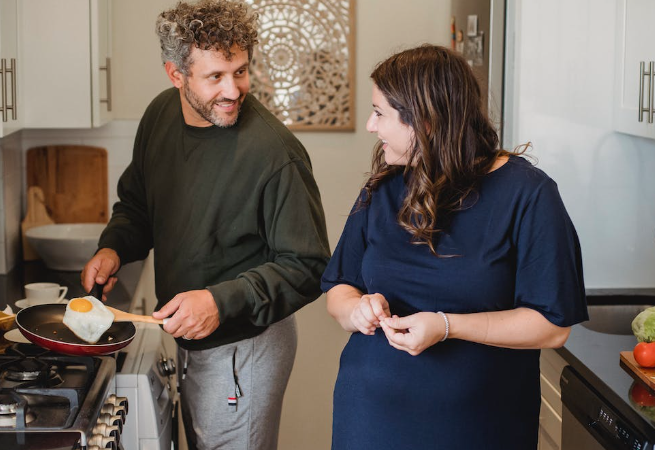Relationships are a vital part of life, whether it be with friends, family, or romantic partners. However, not all relationships are created equal, and it’s important to distinguish between healthy and unhealthy relationships. A healthy relationship is built on mutual respect, trust, and communication, while an unhealthy relationship is characterized by manipulation, control, and abuse. In this article, we’ll delve into the differences between healthy and unhealthy relationships, their characteristics, and how to recognize them.
Characteristics of a Healthy Relationship:
A healthy relationship is built on mutual respect, trust, and communication. Partners value and respect each other’s opinions, feelings, and boundaries, and they feel comfortable expressing their thoughts and feelings without fear of judgment or retribution.
- Mutual Respect: In a healthy relationship, partners value and respect each other’s opinions, feelings, and boundaries. They avoid belittling, criticizing, or disrespecting one another.
- Communication: Healthy relationships are built on open and honest communication. Partners feel comfortable expressing their thoughts and feelings without fear of judgment or retribution.
- Trust: Trust is a cornerstone of a healthy relationship. Partners are reliable, honest, and accountable, and they do not hide or deceive one another.
- Shared Values: In a healthy relationship, partners share similar values and goals. This helps to create a sense of unity and a shared purpose.
- Independence: Healthy relationships allow each partner to have their own interests and pursuits. They do not rely solely on their relationship for happiness or fulfillment.
Characteristics of an Unhealthy Relationship:
- Control: In an unhealthy relationship, one partner tries to control the other’s thoughts, feelings, and behaviors. They may be manipulative, jealous, or possessive.
- Isolation: Unhealthy relationships often involve one partner isolating the other from friends, family, or other support systems.
- Abuse: Abuse can take many forms, including physical, emotional, and sexual. In an unhealthy relationship, abuse is often used as a tool to maintain power and control over the other partner.
- Dishonesty: Unhealthy relationships are often built on lies and deceit. One partner may lie about their whereabouts, finances, or other important matters.
- Lack of Respect: In an unhealthy relationship, partners may disrespect each other through verbal abuse, name-calling, or other forms of belittling.
Healthy vs Unhealthy Relationships
To help you differentiate between healthy and unhealthy relationships, here’s a table summary of the main characteristics:
| Characteristics | Healthy Relationships | Unhealthy Relationships |
|---|---|---|
| Mutual Respect | Both partners value and respect each other’s opinions, feelings, and boundaries. | One partner tries to control the other’s thoughts, feelings, and behaviors. |
| Communication | Partners feel comfortable expressing their thoughts and feelings without fear of judgment or retribution. | Communication may be limited or dishonest, with one partner hiding or deceiving the other. |
| Trust | Partners are reliable, honest, and accountable, and they do not hide or deceive one another. | One partner may be jealous or possessive, or may be hiding secrets that erode trust. |
| Shared Values | Partners share similar values and goals. | One partner may try to impose their values or goals on the other, or the two partners may have very different priorities. |
| Independence | Partners have their own interests and pursuits. They do not rely solely on their relationship for happiness or fulfillment. | One partner may try to isolate the other from friends, family, or other suppor |
What are the 5 Signs of an Unhealthy Relationship?
An unhealthy relationship can have a significant and long-lasting negative impact on both parties involved. Here are 5 signs of an unhealthy relationship: • Controlling behavior: One partner attempts to dictate or control the other’s decisions, behaviors, and activities.
• Lack of respect: There is no mutual respect between partners, often leading to criticism, name-calling, or belittling comments.
• Unhealthy communication: Conversation lacks kindness and understanding; instead partners act in selfish ways that obstruct clear communication. • Constant conflict: Partners argue frequently without resolution, failing to find common ground or compromise.
• Physical violence: The use of physical force is used as a way of resolving arguments and disputes within the relationship. It’s important to recognize the signs early on so that you can address any issues before they become bigger problems down the line.
What is the Difference Between Healthy And Unhealthy Relationships in College?
Healthy and unhealthy relationships in college differ in several ways.
* Healthy relationships involve mutual respect, trust, support, communication, and equality.
* Unhealthy relationships may include manipulation or control from one partner over the other, unrealistic expectations of each other’s time or attention, jealousy and possessiveness, frequent arguing or verbal abuse.
Overall healthy relationships foster growth for both partners while unhealthy relationships often have a negative impact on one’s mental and physical wellbeing.
What are the 4 Characteristics of an Unhealthy Relationship?
An unhealthy relationship is one that can cause physical, emotional, and mental harm to either partner. Here are four key characteristics of an unhealthy relationship:
• Unbalanced power dynamic: One partner has more control than the other and often dictates what happens in the relationship.
• Mistrust: There is a lack of trust between partners, as well as dishonesty or manipulation.
• Lack of communication: Partners don’t communicate openly or with respect for each other’s feelings.
• Physical or emotional violence: One partner uses physical or verbal aggression against the other; this type of behavior should never be tolerated.
Unhealthy relationships can have long-term negative effects on both people involved, so it’s important to recognize these characteristics early on in order to prevent further damage down the road.
How Can You Know If a Relationship is Healthy Or Not?
A healthy relationship should make you feel secure, supported and respected. A few signs of a healthy relationship are:
* Mutual respect – both partners treat each other as equals.
* Transparency – talking openly about feelings and expectations with no fear of judgement.
* Compromise – being able to negotiate differences without one partner feeling taken advantage of or disrespected.
It’s important to remember that relationships involve communication, understanding and compromise from both parties for them to be successful in the long-term.

Credit: www.adinapearson.com
7 Qualities of a Healthy Relationship
A healthy relationship requires trust, communication, commitment, respect and understanding. It is important to have a balance between giving and taking in the relationship as well as respecting each other’s boundaries. Healthy relationships should also involve honest conversations about tough topics, such as financial issues or family dynamics.
Additionally, it is essential for couples to be able to share their feelings openly with one another without fear of judgment or ridicule. Finally, mutual affection and support are key elements in any successful partnership – both partners must feel appreciated and supported by their partner on a consistent basis.
Q. How can you recognize an unhealthy relationship?
An unhealthy relationship can be recognized by several signs, such as controlling behavior, lack of trust, isolation from friends and family, constant criticism, emotional or physical abuse, and manipulation. Additionally, if you feel constantly anxious, unhappy, or stressed in the relationship, it may be a sign that it is unhealthy.
Q. How can you improve a healthy relationship?
A. To improve a healthy relationship, it is important to maintain open and honest communication, practice active listening, show appreciation for each other, respect each other’s boundaries, and prioritize spending quality time together. Additionally, working together to overcome any challenges or conflicts can strengthen the relationship.
Q. Can an unhealthy relationship become healthy?
A. It is possible for an unhealthy relationship to become healthy, but it requires both partners to be committed to making positive changes. This may involve seeking counseling or therapy, improving communication, addressing trust issues, and ending any abusive or controlling behaviors.
Q. How do you end an unhealthy relationship?
A. Ending an unhealthy relationship can be difficult, but it is important to prioritize your own safety and well-being. It may involve seeking support from friends or family, creating a safety plan, and seeking professional help if necessary. It is important to remember that ending a relationship is not a sign of weakness and can be the first step towards a healthier and happier life.
Conclusion
Healthy relationships are essential for one’s mental and physical well-being. They should be based on mutual respect, trust, communication, and understanding. On the other hand, unhealthy relationships may cause emotional distress or even physical harm to an individual.
It is important to recognize the signs of a toxic relationship and take steps to protect yourself if you find yourself in such a situation. By being mindful of what makes a good relationship we can strive towards creating better connections with others that will enrich our lives instead of draining them.



